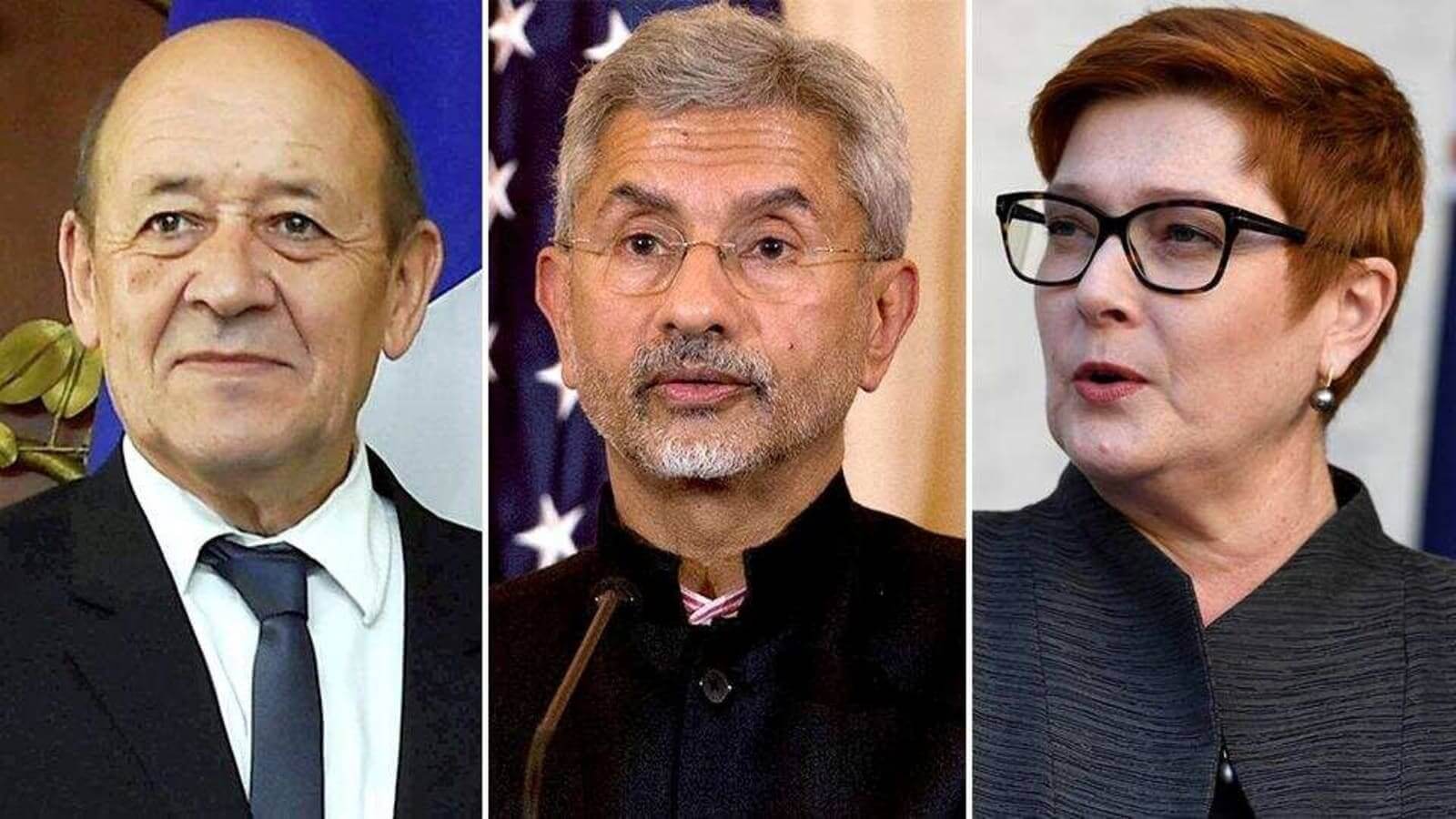This week, Indian External Affairs Minister S. Jaishankar was invited to join the G-7 Summit in London, in an indication of the growing recognition of India as a key player in global security, particularly in the Indo-Pacific. On Tuesday, on the margins of the summit, he met with French Minister for Europe and Foreign Affairs Jean-Yves Le Drian and Australian Minister for Foreign Affairs Marise Payne.
The trio released a joint statement expressing their shared commitment to “advancing their shared values and working together to achieve a free, open, inclusive, and rules-based Indo-Pacific.” The ministers further “reaffirmed their support for the rule of law, freedom of navigation and overflight, peaceful resolution of disputes, democratic values, and respect for sovereignty and territorial integrity.” They also recognised the ASEAN’s ‘centrality’ in achieving this vision, while also acknowledging the importance of other regional forums such as the Indian Ocean Rim Association, the Indian Ocean Naval Symposium, the East Asia Summit, and the Pacific Islands Forum.
The ministers also “shared mutual concerns regarding the strategic, security, economic and environmental challenges in the Indo-Pacific region” and “underscored their commitment to developing sustainable, resilient and quality infrastructure in the Indo-Pacific region.”
In addition, they also “affirmed the centrality of the UN Convention on the Law of the Sea (UNCLOS) and that UNCLOS provides the legal framework for all activities in the oceans and seas”. In a further indication of a statement that in many parts was a thinly-veiled criticism of China, the ministers also “shared mutual concerns regarding the strategic, security, economic and environmental challenges in the Indo-Pacific region.”
On the topic of climate change and the environment, the three ministers said that they would “expand cooperation through multilateral mechanisms” like the International Solar Alliance. The countries also said that they would work towards “the development of a sustainable blue economy, protecting coral reefs, supporting marine biodiversity, and combating marine pollution, particularly plastic pollution.” “They also vowed to address the “issue of unsustainable exploitation of global fish stocks”. All of these objectives, they said, fall within their commitment to the Paris Climate Accords.
Speaking more broadly about multilateralism, the ministers also called for existing institutions to be strengthened through greater “openness, accountability, and balance” that is led by the United Nations. Keeping this in mind, Australia and France both backed India’s bid to gain permanent membership to the UN Security Council
The statement says that the “ministers discussed the current situation Myanmar,” but does not go into any detail about what was said.
India has been growing its ties with Australia over the past few years and last year elevated its relationship from a Strategic Partnership to a Comprehensive Strategic Partnership (CSP). Australia has since participated in naval exercises and leaders’ summits with the Quad. In fact, Jaishankar and Payne held a separate bilateral meeting on the sidelines of the G7 summit as well, wherein they once again discussed issues in the Indo-Pacific.
France, too, has sought to expand its footprint in the Indo-Pacific and in fact held a trilateral dialogue with India and Australia on the topic last September as well. It also held a joint meeting with India and Japan, both of whom are Quad members, in January. Furthermore, in a bilateral meeting with India in January, French national security advisor Emmanuel Bonne extensively discussed France’s commitment to maritime security and the importance of reinforcing a rule-based order. Speaking about France’s increased presence in the Indo-Pacific, Bonne added, “When China breaks the rules, we have to be very robust and very clear and this is the sense of our naval presence in the Indian Ocean.” Further, he said that France also continues to maintain close relations with the Quad.
The latest meeting between Indian, French, and Australian senior diplomats, therefore, illustrates their growing convergence in the Indo-Pacific, where they are coming together to challenge Chinese aggression but also tackling other issues such as terrorism and climate change.
SUMMARY: India-France-Australia Trilateral Ministerial Dialogue
The foreign ministers of India, France, and Australia met on the sidelines of the G7 Summit in London to discuss their shared goals, largely focusing on the Indo-Pacific.
May 7, 2021

IMAGE SOURCE: HINDUSTAN TIMES(L-R) French Minister for Europe and Foreign Affairs Jean-Yves Le Drian, Indian External Affairs Minister S. Jaishankar, and Australian Minister for Foreign Affairs Marise Payne
